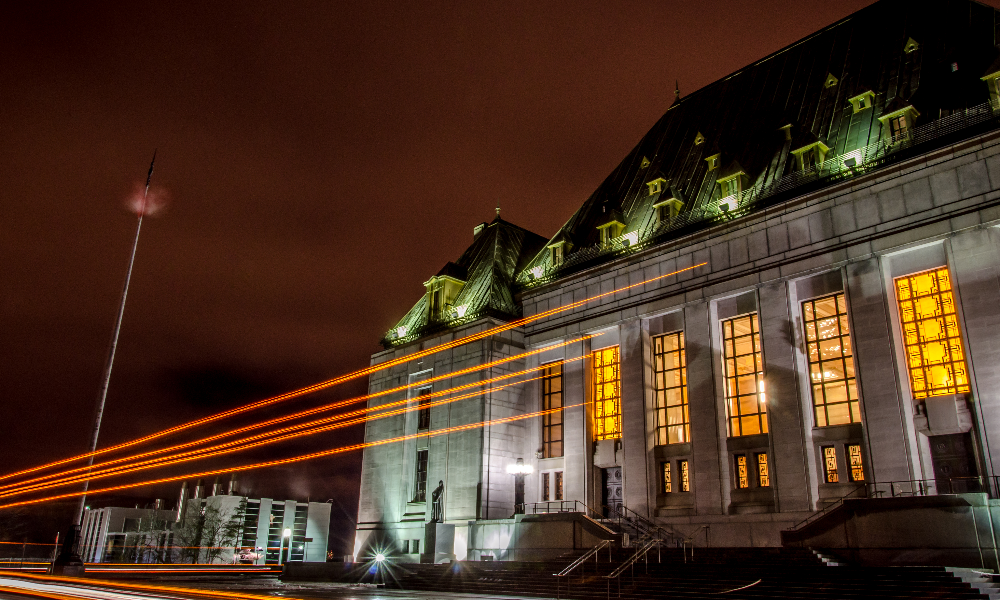
Court found prohibition did not fall within federal criminal law power

The question before the Supreme Court of Canada in Murray‑Hall v. Quebec (Attorney General), 2023 SCC 10 was whether the constitutional division of powers allows Quebec to prohibit all cultivation of cannabis plants for personal use and whether its prohibition is operative under federal paramountcy.
Janick Murray‑Hall argued that ss. 5 and 10 of the Cannabis Regulation Act were ultra vires provincial authority, falling within federal criminal law power under s. 91(27) of the Constitution Act, 1867.
In a unanimous ruling released Friday, the SCC dismissed Murray‑Hall’s appeal. The court found Quebec’s prohibitions were an effort to regulate the health and security of the province by steering consumers toward the provincial monopoly’s “safe” cannabis supply. The overlapping jurisdiction, where each level of government addressed a different aspect of the legal cannabis market, represented an application of the “double aspect doctrine,” said the court.
The ruling is “relatively conservative,” as it sticks closely to existing SCC jurisprudence taking a narrow approach to federal paramountcy, says Olga Redko, who represented Canadian Association for Progress in Justice, an intervenor.
“Importantly, it also adopts a unanimously restrained approach to the scope of the federal criminal law power,” says Redko. Despite various attempts to persuade the court that Parliament intended to create a positive right to cannabis – and a provincial ban would frustrate this purpose – the court rejected the idea that Parliament could ever use criminal law power to create any positive rights, concluding this would be an improper extension of the power, she says.
“I suspect this restrained approach will give some comfort to the provinces going forward and serves as a caution to the federal government about the restrictive use to be made of its criminal law jurisdiction.”
The court’s restrained approach to the doctrine of paramountcy is important when more and more overlap between federal and provincial jurisdiction has been allowed, says Dr. Dwight Newman, professor and Canada Research Chair in Indigenous Rights in Constitutional and International Law at the University of Saskatchewan College of Law. Newman was not involved in the case.
“But it remains to be seen if the approach here will endure in other cases with different kinds of issues,” he says.
Parliament passed the Cannabis Act in 2018, decriminalizing the recreational use of cannabis and allowing for the possession and cultivation of up to four cannabis plants for personal use. Provinces and territories enacted their own laws to regulate the cannabis market. In Quebec’s Cannabis Regulation Act, the province banned any home cultivation of cannabis plants for personal purposes.
Murray‑Hall was successful initially. The Superior Court declared ss. 5 and 10 unconstitutional. But the Court of Appeal set aside the ruling, finding the provisions were within the powers conferred on the provinces by ss. 92(13) and 16 of the Constitution Act, 1867. Section 92(13) gives the provinces authority over “property and civil rights,” and 92(16) gives the provinces authority over “generally all matters of a merely local or private nature in the province.”
In hearing Murray-Hall’s appeal and determining whether the law’s provisions are constitutionally valid under the division of powers, the SCC first had to characterize the provisions, classify them based on the heads of power in ss.91 and 92 of the Constitution Act, said Chief Justice Wagner, who wrote the reasons for the court.
Wagner said the provincial act created a regulatory scheme involving a state monopoly on cannabis sales “in order to protect the health and security of the public.” Sections 5 and 10 represent “the machinery of this undertaking,” which “contributes to the effectiveness of the state monopoly by steering consumers to the only legally authorized source of supply.” Therefore, the pith and substance of the sections is to protect public health and security and not to prohibit possession and cultivation.
For classification, the court looked at whether the provisions fell under federal criminal law power in s. 91(27) or within the power conferred to provinces “over property and civil rights and matters of a merely local or private nature” in ss. 92(13) and (16).
Having found the provisions’ pith and substance related to health and security, the court examined the constitutional bases for provincial legislative action in public health. This legislative action is “grounded primarily in broad and plenary jurisdiction over property and civil rights… and residual jurisdiction over matters of a merely local or private nature in the province,” said Wagner.
Not assigned in the Constitution Act, of 1867, health is an area of overlapping jurisdiction. Wagner adds that it is “well established” that both levels of government have the power to legislate in relation to products posing a danger to public health, including tobacco and alcohol.
While prohibitions like those in ss. 5 and 10 of Quebec’s Cannabis Regulation Act have been enacted under federal criminal law power, Wagner said this can be explained by the double aspect doctrine, a “contemporary view of federalism and constitutional interpretation which recognizes that overlapping powers are unavoidable.” Under the doctrine, both levels of government may legislate on matters with both a federal and provincial aspect. The doctrine can be applied where each level of government has a compelling interest in legislating on “different aspects of the same activity or matter,” he said.
“This appeal is a textbook case for the application of the double aspect doctrine,” said Wagner. Criminal law addresses the matter by “suppressing some ‘evil’ or injurious or undesirable effect upon the public,” and regulating health or trade addresses “the conditions of production, distribution and sale of the substance.” It is in the latter sphere that ss. 5 and 10 of Quebec’s law regulate cannabis, he said.